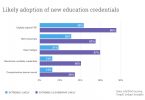Humana and UnitedHealth Group, two of the largest US health insurance companies, are launching a health insurance blockchain pilot. They’re teaming up with two technology and data companies, Multiplan and Optum. The project focuses on health care provider demographic data.
What the pilot covers
‘Health care provider demographic data’ refers to information about hospitals and medical practices, their federal ids, locations, and medical practitioner details. It doesn’t sound like a lot of data, but it’s massive. Think about the up-to-date licensing and qualifications of every doctor and dentist. And then extend that to nurses, social workers, counselors and more.
The data enables patients to find access to care and is needed for claims processing and contracting with healthcare plans.
In 2017 Health Plan Week estimated that $2.1 billion is spent annually across the health care system chasing and maintaining provider data.
According to the statement from the group: “The pilot will also address the high cost of health care provider data management, testing the premise that administrative costs and data quality can be improved by sharing provider data inputs and changes made by different parties across a blockchain, potentially reducing operational costs while improving data quality.”
Competitors
Unrelated to blockchain, there’s an existing non-profit group consortium, CAQH, whose role is to streamline data sharing. UnitedHealth is one of 14 members. CAQH created CORE which is a standardized data format that 140 organizations comply with including Humana and UnitedHealth.
CAQH has a centralized Provider Directory called DirectAssure, which enables healthcare providers to update and confirm directory information in one place, so participating health plans can use the data.
The objectives of DirectAssure appear to be similar to the blockchain project goals. Even though this centralized database of 1.4 million healthcare providers exists, there’s a lot of data duplication. According to the blockchain initiative “health care stakeholders typically maintain separate copies of health care provider data, which can result in time-intensive and expensive reconciliation processes when differences arise.”







